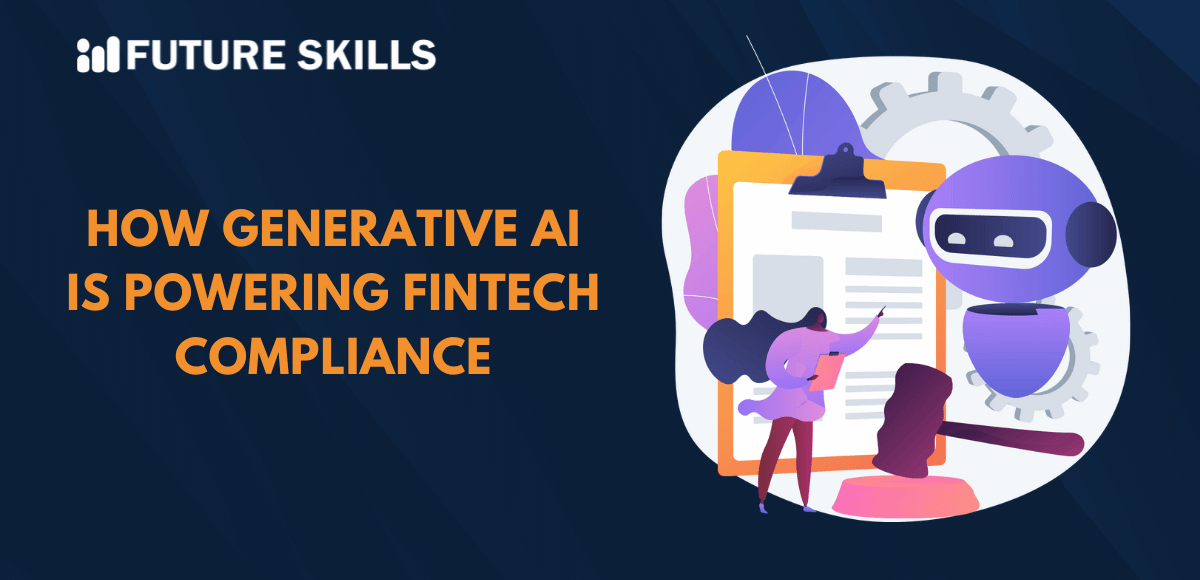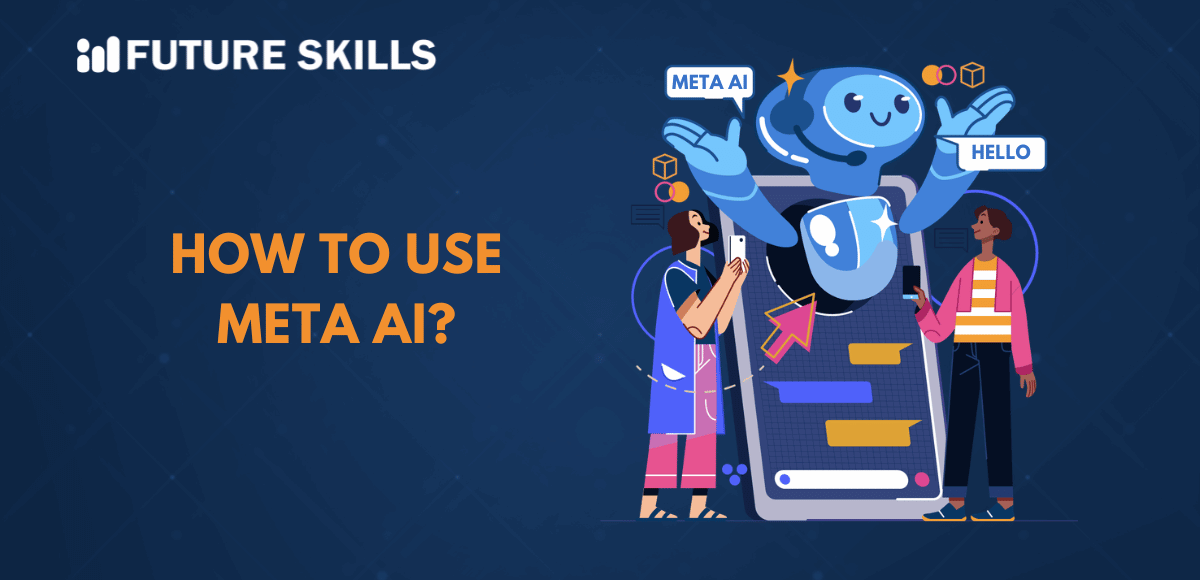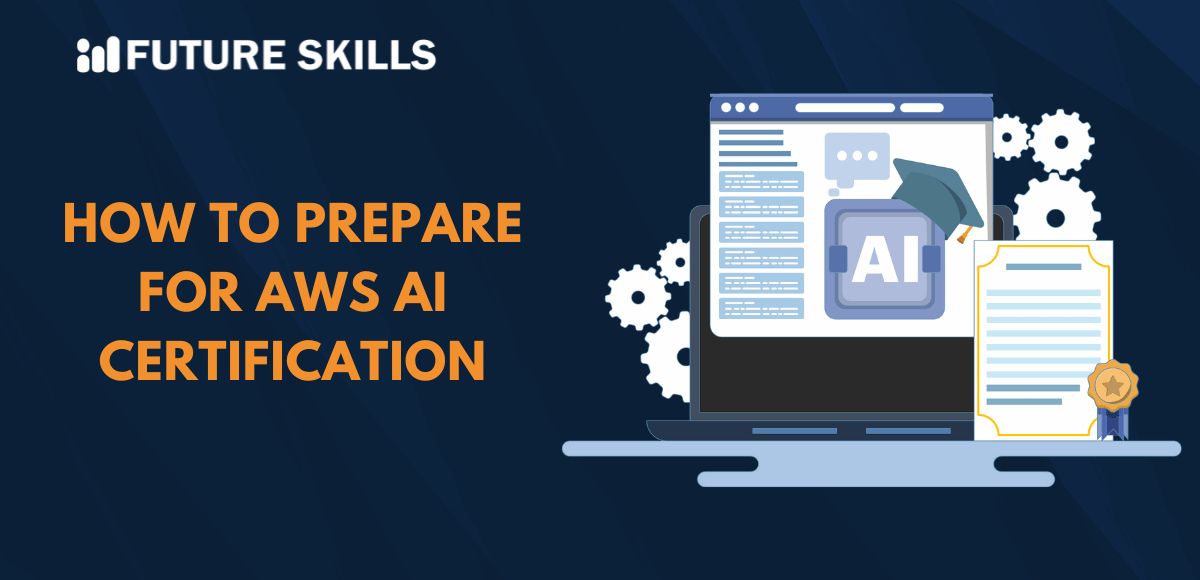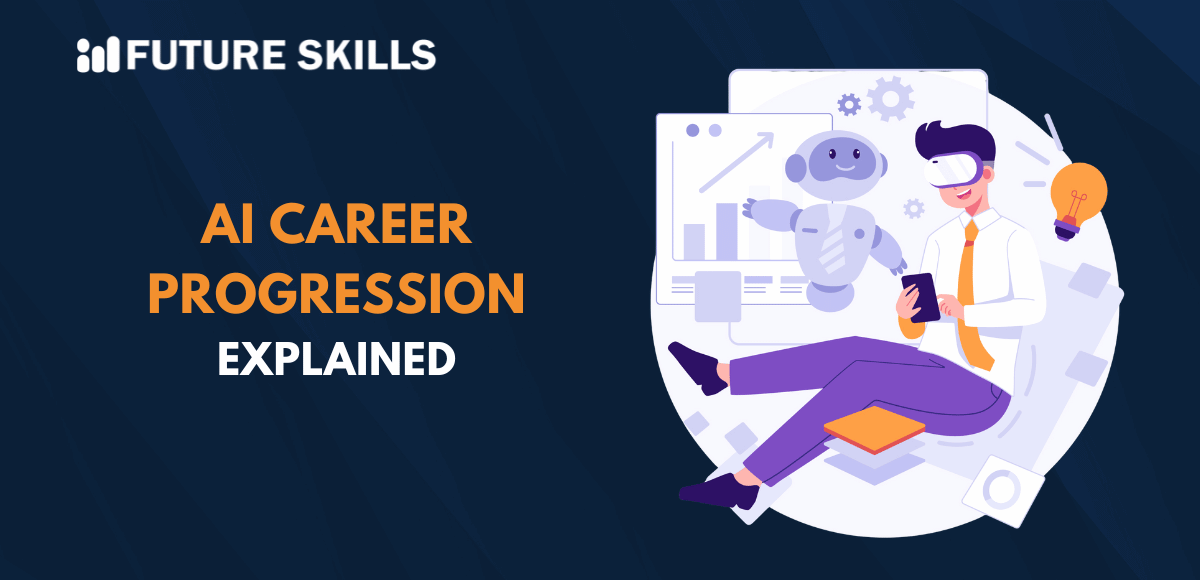Generative AI technology has undoubtedly expanded the boundaries of Artificial Intelligence. After its emergence, it has brought about revolutionary changes in diverse spaces. One such space where the impact of Generative AI has been transformational in nature is fintech. Even though Generative AI in FinTech is in its infancy, it has shown immense promise and potential.
Thanks to the capabilities of Generative AI, the financial services sector has become more digital in nature. The automative capabilities have streamlined diverse processes as well as practices. One specific area that has benefited significantly from Generative AI in FinTech is related to compliance. It is time to explore how Generative AI can automate compliance in the FinTech arena.
Level up your AI skills and embark on a journey to build a successful career in AI with our Certified AI Professional (CAIP)™ program.
An Insight into Generative AI
Generative AI refers to the type of Artificial Intelligence technology that is capable of creating original content based on the request of the user. This novel concept is sometimes referred to as gen AI. It has captured the attention of one and all due to its ability to develop content in the form of text, images, and many other formats.
Generative AI depends on sophisticated ML models, which are known as deep learning models. These deep learning models are responsible for stimulating the decision-making and learning processes relating to the human brain. These models can recognize as well as encode patterns and associations in humongous volumes of data. This information is then used for understanding the natural language queries of the users and responding accordingly. Now you may be wondering – How can generative AI be used in finance?
Role of Generative AI in Fintech
The influence of Generative AI in Fintech has been revolutionary. The combination of Fintech and GenAI has undoubtedly opened new avenues relating to innovation and operational efficiency. Fintech companies are in a position to leverage NLP, ML, and Deep Learning for automating repetitive tasks while boosting their overall efficiency.
Generative AI in FinTech has also been playing a catalytic role in making FinTech more accessible for the masses. It has certainly become more accessible through applications such as personalized financial advisory, monitoring, and detection of fraud, and many more.
A major area that has undergone a remarkable change in the Fintech realm due to Gen AI revolves around compliance. This is because Generative AI has been gradually streamlining compliance through the automation of different processes and operations.
Enroll now in the Mastering Generative AI with LLMs Course to achieve specialization in using evaluation metrics to create reliable and accurate generative AI models.
Major Areas of Automation
Automation is one of the core capabilities of Generative AI. It enables businesses to not only streamline but also scale and strengthen diverse processes and operations. When it comes to compliance in the Fintech sector, automation creates value in varying ways. Some of the major Fintech AI use cases include:
-
Ongoing Monitoring
Are you wondering – How can generative AI be used in finance? The answer is quite straightforward. It allows the continuous monitoring of regulations and laws that are applicable in the financial services industry. Thus, fintech firms can take advantage of the advanced models for the purpose of tracking as well as processing a large number of regulations in real time. Gen AI in fintech is capable of scanning regulatory databases automatically and identifying the compliance obligations of a firm. In case any change is detected, AI tools can flag areas that might require attention.
-
Automated Reporting
Generative AI in fintech is capable of automating regulatory reporting practices. This is possible since it can analyze transaction data for the purpose of producing compliance reports and identifying non-compliant areas. Moreover, thanks to automation, the degree of manual effort can be substantially curbed. The ability to create audit trails and perform document review can lead to highly efficient compliance practices.
-
Enhanced Fraud Detection
Within a short span of time, GenAI has transformed practices relating to security and fraud detection. It fundamentally enables the detection of threats in real time and helps in providing a proactive response. Firms can utilize AI tools to evaluate an enormous amount of transactions for detecting anomalies. Advanced AI models can even learn from past data to identify new kinds of fraud techniques and approaches. Thus, it is possible to identify where there are compliance-related gaps.
-
Document Management
Document Management can be a herculean task for fintech firms if it is done manually. This is when Generative AI comes into the picture. Fintech firms can leverage Gen AI for the purpose of extracting, classifying, and summarizing information from a large number of documents, such as compliance records. Thus, it is possible to transform unstructured data into rich and actionable insights. As a result, it can lead to better regulatory accuracy for fintech firms.
-
Risk Management
FinTech companies can automate compliance by strengthening their risk management practices. It is possible for them to produce credit risk reports. Moreover, firms can also assess customers to check their risk profiles. They can even automate the monitoring of model performance in order to ensure regular compliance with the evolving regulatory frameworks. The automation of the practices minimizes the involvement of manual interventions, thereby reducing the possibility of errors.
Understand how fintech is revolutionizing finance and develop a career with our Fintech Certification Program. Enroll now!
Benefits of Generative AI
The adoption of Generative AI in fintech can give rise to a broad range of benefits. The major benefits are:
-
High Efficiency
By automating lengthy and time-consuming operations, fintech entities can streamline their activities. It can result in improved efficiency for these entities.
-
Cost-Saving
The use of GenAI can lead to a reduction in operational costs as it can minimize the reliance on human beings.
-
Better Decision-Making
Fintech entities can leverage rich processed data to make well-informed decisions on a regular basis.
Enroll now in the AI and Fintech Course to familiarize yourself with the best practices for implementing AI and fintech solutions.
GenAI’s Future in Fintech Compliance
The role of Gen AI is highly relevant in the uncertain fintech legal setting. The fusion of Fintech and GenAI can ensure that the automation capabilities help to ensure complete compliance with the applicable policies and standards.
The Fintech AI use cases are likely to further expand in the future because of the usefulness of GenAI capabilities. AI in fintech can play a key role in improving transparency, along with the level of accuracy. It can also lead to broader benefits in the form of faster audits as well as the ability to scale compliance without increasing resource use. The strategic integration of generative AI with fintech has the potential to transform compliance into a strategic asset for fintech firms.
Final Words
Generative AI has emerged as a boon in the Fintech arena. It has certainly revolutionized compliance-related practices in the financial services sector, although the technology is new and still developing. It is a must for fintech firms to comprehend the promising nature of Generative AI. The insight can help them leverage GenAI strategically.
Some of the main areas where gen AI is playing a key role to ensure compliance include ongoing monitoring, automated reporting, enhanced fraud detection, and many more. A broad range of benefits can arise from fintech firms that capitalize on gen AI. Some of the key benefits are heightened operational and cost efficiency and better decision-making capability.






